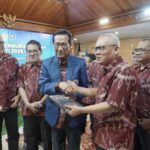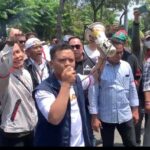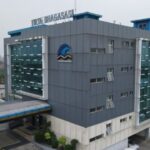BEKASI CITY – The Bekasi City Education Office has decided to reevaluate the school start time policy, reverting from 6:30 AM WIB back to the original time of 7:00 AM WIB.
The Secretary of the Bekasi City Education Office stated that they had conducted an evaluation across all school levels, including early childhood education, kindergarten, elementary, and junior high schools, after a week of implementing the 6:30 AM WIB start time.
The result was that representatives from each district, including education units, human resources, and the inspectorate, agreed to revert the school start time to the original 7:00 AM WIB.
“Elementary and junior high schools will start at 7:00 AM WIB, while kindergartens will begin at 7:30 AM WIB. The official letter has not yet been issued, but the policy has already been adjusted,” the Secretary explained.
The decision was made after considering various factors and complaints from parents in the field, leading the Education Office to discontinue the policy originally introduced by the West Java Governor.
“There were multiple factors. At that early hour, many parents were also commuting to work, and psychologically, elementary school children were not yet ready. It was simply too early, leading to traffic congestion in several central areas based on our one-week evaluation,” he added.
Furthermore, similar complaints were raised by parents due to traffic jams near schools, forcing them to worry about their vehicles on the roads.
“This created crowding in schools located near main roads, such as SMP 1, 2, and 3, for example,” he said.
According to the Secretary, the 6:30 AM WIB school start time was not suitable for implementation in Bekasi City.
“Based on feedback from stakeholders, 7:00 AM WIB is more effective. At 6:30 AM, some children haven’t had breakfast, parents aren’t ready, and the kids are still sleepy. They can’t go to school alone since they need to be accompanied by their parents,” he concluded.
Bekasi City Education Office
SMP 1
(Note: If “SMP 1” refers to a specific location or cultural site not related to schools, please provide additional context for a more accurate summary.)
SMP 2
If referring to a specific SMP 2 (e.g., *SMP Negeri 2 Surabaya* or another city), additional context would help summarize its unique history. Let me know if you’d like a more tailored summary!
SMP 3
If referring to a specific SMP 3 (e.g., *SMP Negeri 3 Bandung* or another city), additional context would help provide a more precise summary. Let me know if you’d like details on a particular location!






